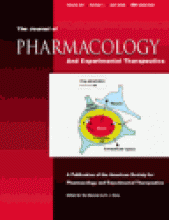Abstract
A model of fetal alcohol syndrome was used to investigate prenatal ethanol effects on cerebellar transcription factors. Pregnant Sprague-Dawley rats were divided into three treatment groups: ethanol-exposed (E), calorically matched pair-fed (PF), and freely fed ad libitum (AL) groups. Ethanol exposure was stopped 2 days before parturition. The DNA binding in neonatal cerebella of the redox-sensitive transcription factors nuclear factor-κB (NF-κB) and activator protein-1 (AP-1) were determined by electrophoretic mobility shift assays. On the first postnatal day (PD1), there was decreased activation of these transcription factors in the E group relative to the control groups. The PD1 transcriptional effects were reversed as the neonate underwent development without further ethanol exposure. Western blot studies showed no corresponding decreases in protein amounts of both AP-1 and NF-κB components on PD1. Postnatal glutathione levels and catalase activity, as measures of oxidative stress hypothesized to be a probable cause of the transcriptional effects, showed no statistically significant effects attributable to ethanol. Examination of prenatal cerebella on embryonic day 20 (EM20), a time during ethanol exposure, showed DNA-binding trends similar to those of PD1. EM20 Western blot studies showed decreases in the levels of the active form of glycogen synthase kinase-3 (GSK-3). GSK-3 inhibition was reversed by PD1. Blocking of GSK-3 activity with gestational dietary lithium diminished both AP-1 and NF-κB DNA binding. Thus, prenatal ethanol exposure has the effect of diminishing pro-survival transcriptional activation, an effect possibly mediated by changes in GSK-3 activity.
Footnotes
-
Supported by National Institute on Alcohol Abuse and Alcoholism Grant AA05809, National Institutes of Health Grant ES 09791, and the Fred Murphy Jones Fellowship.
- Abbreviations:
- FAS
- fetal alcohol syndrome
- AP-1
- activator protein-1
- NF-κB
- nuclear factor-κB
- GSK-3
- glycogen synthase kinase-3
- PD
- postnatal day
- EM
- embryonic day
- E
- ethanol-exposed
- PF
- pair-fed
- AL
- ad libitum
- EMSA
- extraction and electrophoretic mobility shift assay
- TTBS
- Tween 20/Tris-buffered saline
- GSH
- glutathione
- GSSG
- glutathione disulfide
- SAPK-1
- stress-activated protein kinase-1
- Received July 24, 2001.
- Accepted December 28, 2001.
- The American Society for Pharmacology and Experimental Therapeutics
JPET articles become freely available 12 months after publication, and remain freely available for 5 years.Non-open access articles that fall outside this five year window are available only to institutional subscribers and current ASPET members, or through the article purchase feature at the bottom of the page.
|






